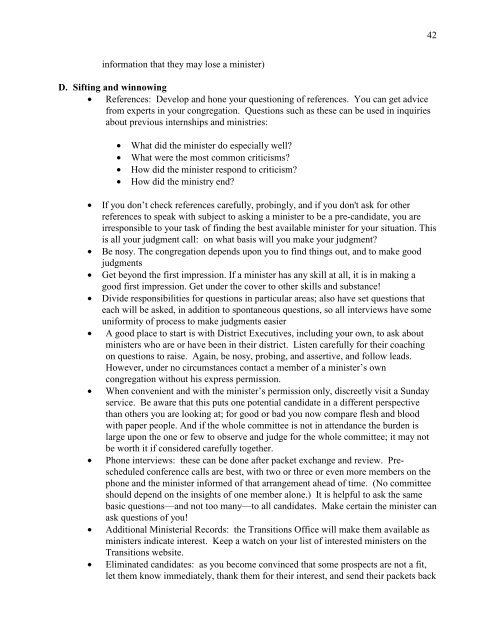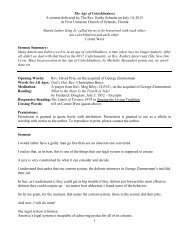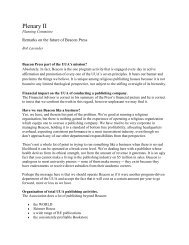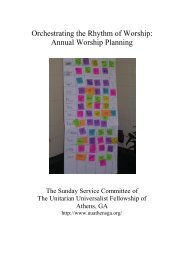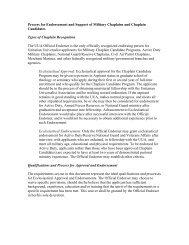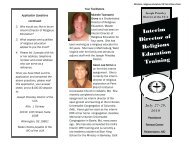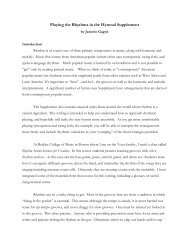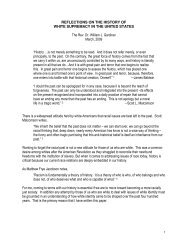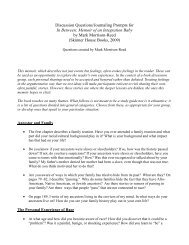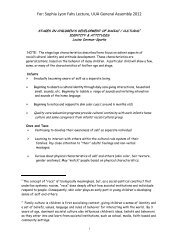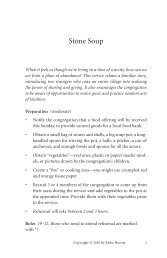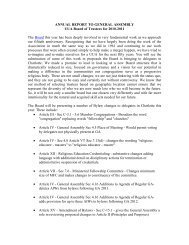MSR Guide - Unitarian Universalist Association
MSR Guide - Unitarian Universalist Association
MSR Guide - Unitarian Universalist Association
Create successful ePaper yourself
Turn your PDF publications into a flip-book with our unique Google optimized e-Paper software.
42<br />
information that they may lose a minister)<br />
D. Sifting and winnowing<br />
• References: Develop and hone your questioning of references. You can get advice<br />
from experts in your congregation. Questions such as these can be used in inquiries<br />
about previous internships and ministries:<br />
• What did the minister do especially well<br />
• What were the most common criticisms<br />
• How did the minister respond to criticism<br />
• How did the ministry end<br />
• If you don’t check references carefully, probingly, and if you don't ask for other<br />
references to speak with subject to asking a minister to be a pre-candidate, you are<br />
irresponsible to your task of finding the best available minister for your situation. This<br />
is all your judgment call: on what basis will you make your judgment<br />
• Be nosy. The congregation depends upon you to find things out, and to make good<br />
judgments<br />
• Get beyond the first impression. If a minister has any skill at all, it is in making a<br />
good first impression. Get under the cover to other skills and substance!<br />
• Divide responsibilities for questions in particular areas; also have set questions that<br />
each will be asked, in addition to spontaneous questions, so all interviews have some<br />
uniformity of process to make judgments easier<br />
• A good place to start is with District Executives, including your own, to ask about<br />
ministers who are or have been in their district. Listen carefully for their coaching<br />
on questions to raise. Again, be nosy, probing, and assertive, and follow leads.<br />
However, under no circumstances contact a member of a minister’s own<br />
congregation without his express permission.<br />
• When convenient and with the minister’s permission only, discreetly visit a Sunday<br />
service. Be aware that this puts one potential candidate in a different perspective<br />
than others you are looking at; for good or bad you now compare flesh and blood<br />
with paper people. And if the whole committee is not in attendance the burden is<br />
large upon the one or few to observe and judge for the whole committee; it may not<br />
be worth it if considered carefully together.<br />
• Phone interviews: these can be done after packet exchange and review. Prescheduled<br />
conference calls are best, with two or three or even more members on the<br />
phone and the minister informed of that arrangement ahead of time. (No committee<br />
should depend on the insights of one member alone.) It is helpful to ask the same<br />
basic questions—and not too many—to all candidates. Make certain the minister can<br />
ask questions of you!<br />
• Additional Ministerial Records: the Transitions Office will make them available as<br />
ministers indicate interest. Keep a watch on your list of interested ministers on the<br />
Transitions website.<br />
• Eliminated candidates: as you become convinced that some prospects are not a fit,<br />
let them know immediately, thank them for their interest, and send their packets back


